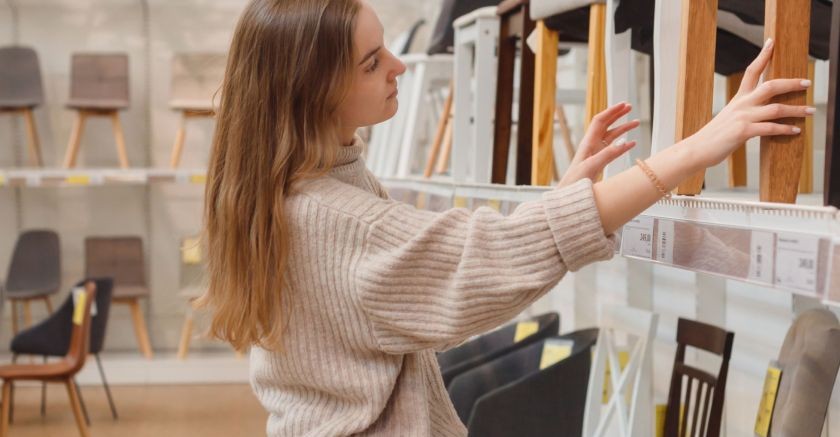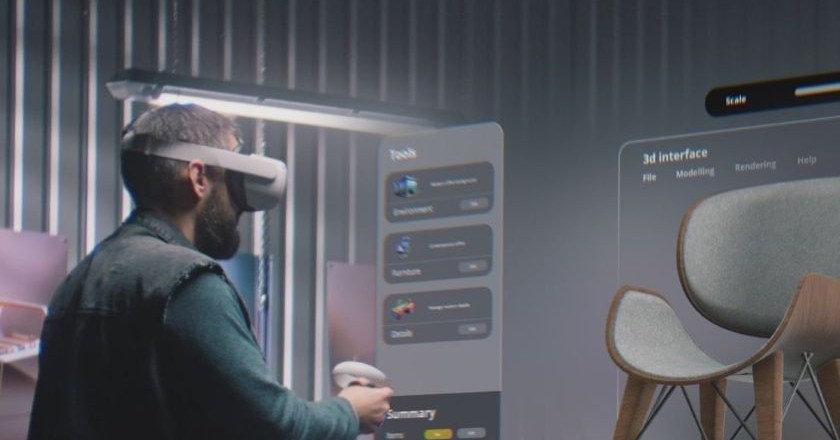Why AI is Essential for Delivering Exceptional Retail Customer Experiences
What if you could predict which sofa a customer is most likely to buy, even before they sit down? AI lets you do that, turning guesswork into precision, and shoppers into loyal customers. In the furniture industry, offering a personalized, seamless shopping experience is essential for staying ahead. With AI, you can engage customers in ways that feel relevant, timely, and meaningful—right when it matters.
As furniture stores face growing competition from online shopping and shifting customer expectations, staying relevant means adapting. Today’s shoppers expect more—faster service, better personalization, and more convenience. Without AI, meeting these expectations becomes a real challenge. With the right tools, however, you can not only meet those demands but exceed them, building stronger connections and turning shoppers into repeat customers.
What You Need to Know About Implementing AI in Furniture Retail
Implementing a new system can be overwhelming, but breaking it down into clear steps makes the process smoother. Here’s what to focus on to make AI work for your store.
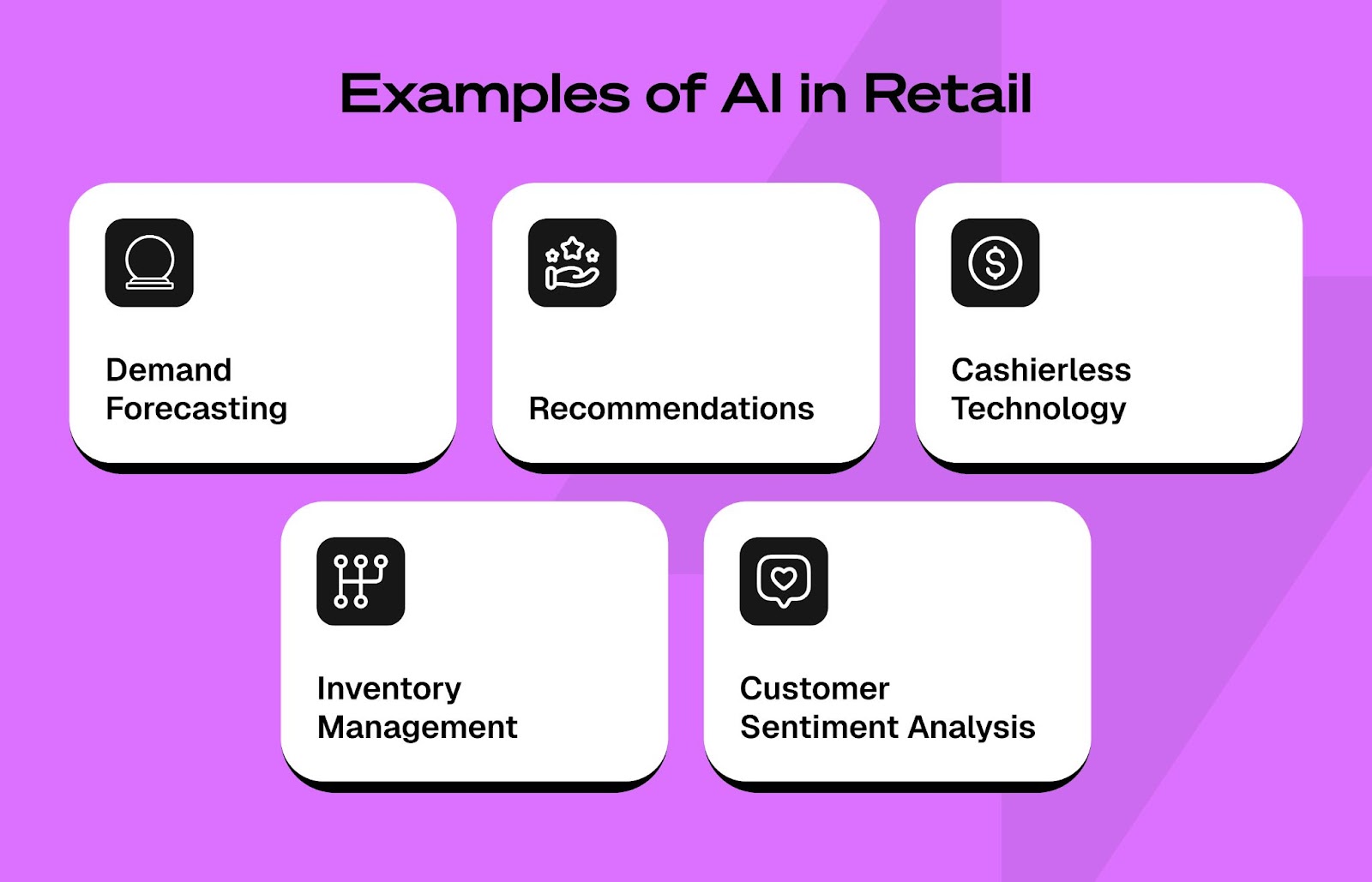
Picking the Right AI Solutions for Your Store’s Needs
When it comes to choosing the right AI in furniture retail tools for your store, it’s all about understanding your core needs first. Are you struggling with stock visibility? Or maybe your team is overwhelmed with managing customer inquiries? Before you dive into picking a solution, take a step back and clarify what problems you’re trying to solve.
For example, if your biggest challenge is keeping track of inventory, look for AI tools that improve stock visibility and prevent stockouts. If customer service is where you need help, consider AI that enhances engagement, from personalized recommendations to faster response times. Define your goals, and then look for the right fit that can address those specific needs.
AI can do a lot, but only if you have a clear idea of what you want to improve. So, before you start exploring all the tools out there, get clear on your goals, and choose the solution that will make the biggest impact for your store.
Data Integration: How to Avoid the Nightmare of Disconnected Systems
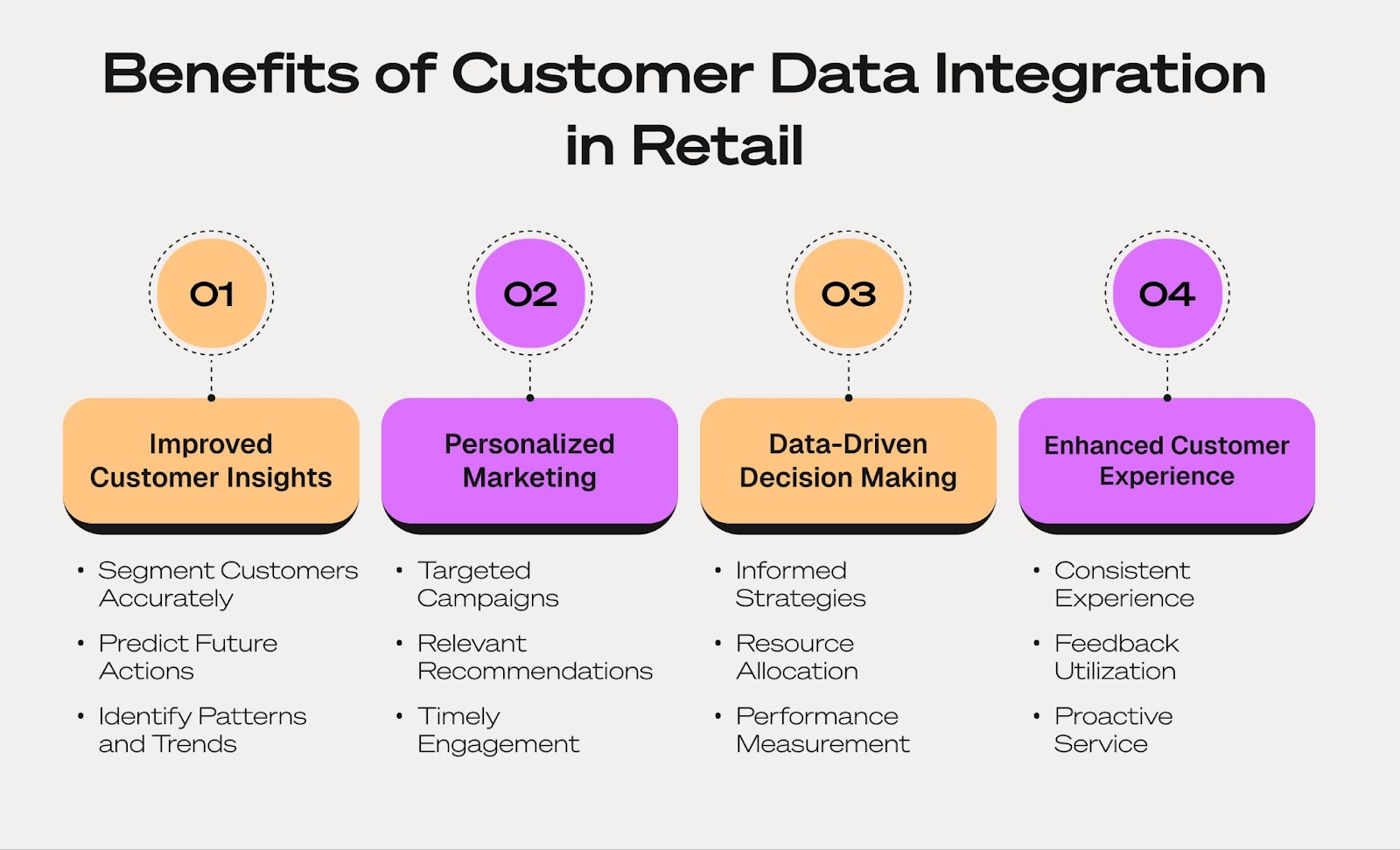
When it comes to implementing AI in your store, one of the biggest hurdles is dealing with disconnected systems. Many furniture stores still rely on outdated POS systems, fragmented CRM tools, and siloed data sources. The result? A chaotic mess of information that makes it nearly impossible to gain the real-time insights you need for AI to work effectively.
Rather than trying to overhaul everything at once, start with the basics. Pick the most critical system in your store—whether it's your inventory management or customer engagement—and begin integrating AI there. This focused approach helps reduce the complexity and lets you see immediate improvements.
To make the process smoother, consider using middleware to connect different systems. This allows data to flow seamlessly between your existing tools and new AI in furniture retail platforms, creating a more unified system without disrupting your entire operation. Once your core systems are talking to each other, you can gradually expand AI tools to tackle other areas, making the transition more manageable.
Managing Staff Buy-In and Overcoming Resistance
When bringing AI into your store, the real challenge lies in ensuring your team is on board and ready to use the tools effectively. Without buy-in, the technology won't live up to its potential, no matter how advanced it is.
Start by providing hands-on training that focuses on the practical use of AI and how it can make their day-to-day tasks easier. Employees will be more willing to adopt the tools when they see how they’ll help improve efficiency, reduce workload, and ultimately lead to better retail customer experiences.
A sales team, for example, might resist using AI for product recommendations, thinking it diminishes their role. To overcome this, show them how AI works alongside them. AI can take care of repetitive tasks, allowing them to focus on personal interactions and making the most of each customer conversation. Providing incentives, such as recognition or performance bonuses, can also motivate staff to embrace the new tech, turning it into a valuable asset for both their work and the store’s bottom line.
How AI Takes Your Furniture Store Operations to the Next Level
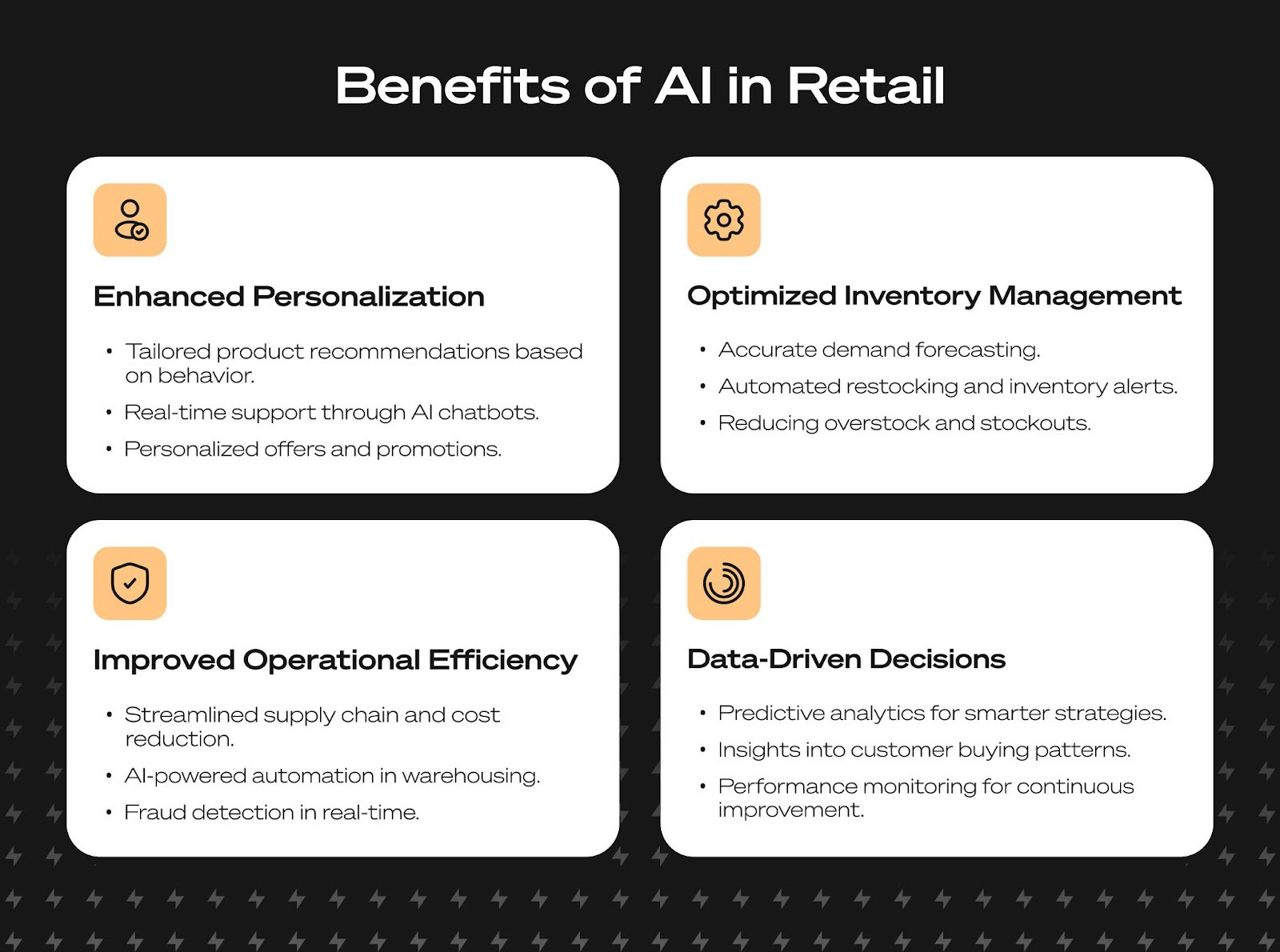
When done right, AI in furniture retail can simplify your operations and enhance your customer experience. Here’s how integrating it into your store can lead to significant improvements.
Personalization: Enhancing Customer Interactions with Evoneer’s AI Assistant
When customers walk into your furniture store, they don’t just want a product—they want a shopping experience that feels tailored to their needs. With AI, sales reps can engage with customers in a more personalized way, recommending products that truly match their preferences in real-time.
One such tool, Evoneer’s AI Assistant, makes this possible by providing sales reps with instant access to personalized product suggestions. Instead of offering random recommendations, the AI helps reps make informed choices based on the customer’s current needs and shopping behavior. For example, if a customer is looking for a sofa but isn’t sure which one fits their style, the AI Assistant can suggest a cohesive room setup that aligns with their tastes, including complementary items like matching tables or chairs. This personalized approach not only enhances the retail customer experience but also increases the likelihood of closing the sale and building long-term loyalty.
Streamlining Customer Service and Sales Rep Efficiency with AI
Sales reps in furniture stores often find themselves fielding the same routine questions about product features, availability, or store policies. While these questions are important, they can take time away from what really matters—building relationships with customers and closing sales.
This is where Evoneer’s AI Assistant comes in to help. By quickly providing answers to common customer inquiries—like product specs, pricing, or promotions—it frees up sales reps to focus on higher-value tasks. For instance, instead of spending time looking up inventory information or answering the same questions repeatedly, sales reps can now engage with customers on a deeper level, offering personalized recommendations or assisting with decision-making. This not only improves overall customer service but also enhances sales rep efficiency, creating a more productive and seamless experience for both staff and customers.
Optimizing In-Store Sales Interactions with AI Assistance
The sales floor can get busy, and it’s not always possible to give each customer your undivided attention. While personal, face-to-face interactions are key, having a tool that supports your sales reps can help maximize their efficiency and improve the overall experience for everyone.
Evoneer’s AI Assistant acts as a powerful support tool for sales associates, allowing them to provide informed, consistent recommendations without having to step away from any customer. For example, while one sales rep is assisting a customer in one part of the store, the AI Assistant can provide the same rep with instant access to product details, personalized suggestions, and answers to common questions for a different customer. This not only keeps the sales process running smoothly but also enables your team to focus on delivering exceptional, personalized service to every shopper.
Measuring AI’s Impact: How to Track ROI in Furniture Retail
Implementing AI in furniture retail is one thing, but proving it works is another. By defining clear metrics from the start, you can see exactly how your efforts influence sales, customer satisfaction, and repeat visits.
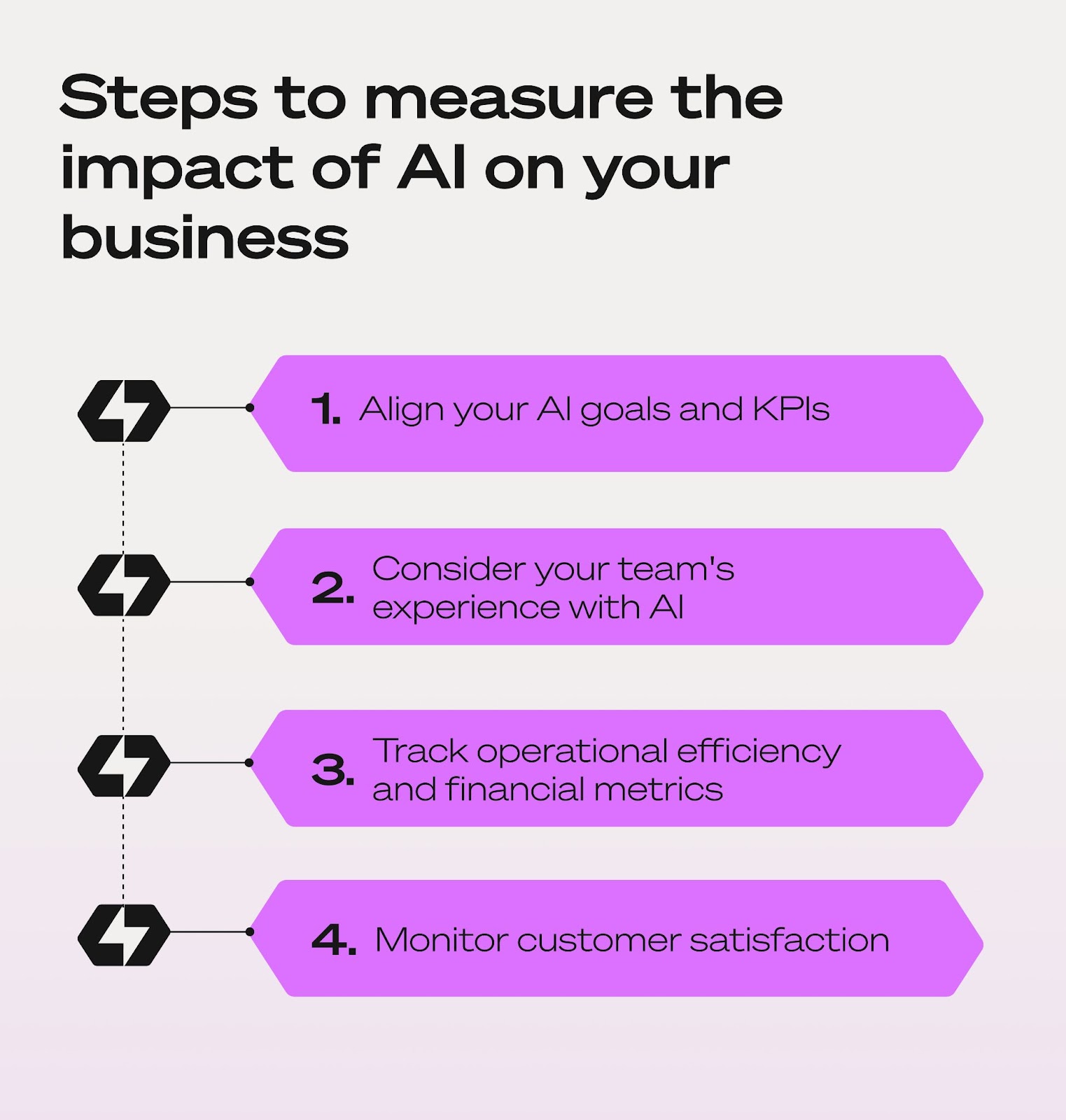
From KPIs to Dollars: How to Track AI’s Impact on Sales and Customer Loyalty
Once AI tools are in place, it’s crucial to measure whether they’re actually making a difference. Start by defining the metrics that matter most to your store:
- Conversion Rate: Track how many visitors turn into buyers. Compare periods before and after AI implementation to see whether personalized recommendations or optimized inventory displays are moving the needle.
- Average Order Value (AOV): Look at whether AI-driven upselling and cross-selling prompts are increasing the value of each transaction.
- Repeat Business: Monitor returning customers to see if AI-enhanced experiences are encouraging loyalty.
To make this practical, tie each AI recommendation to a measurable outcome. For example, if your AI assistant suggests complementary items, you can track how often those suggestions lead to additional purchases. Use your POS or CRM system to tag these transactions and analyze the patterns over time.
Regular reporting is key. Create a simple dashboard that shows conversion, AOV, and repeat purchase rates side by side. This makes it easy to spot trends and see which AI-driven strategies are working, and which might need tweaking.
Operational Savings: How AI Improves Store Efficiency and Cuts Costs
Managing a furniture store involves a lot of repetitive, time-consuming tasks that rarely add direct value to customers. Stock checks, reordering, and keeping inventory accurate can eat up hours of staff time each week. AI changes that by automating these processes. For example, an AI system can monitor inventory levels in real time, flag low-stock items, and even trigger reorders automatically. This doesn’t just reduce human error—it frees your team to focus on activities that drive revenue, like helping customers, arranging displays, or executing upselling strategies. Over time, this operational efficiency translates into measurable savings: fewer staffing hours spent on manual tasks, less overstock or stockouts, and a smoother, more predictable supply chain.
The Long-Term Value of AI: Customer Retention and Loyalty
When your team uses AI in furniture retail to understand what each customer likes, from favourite styles to past purchases, you can tailor follow-ups and offers in ways that feel personal rather than generic. Imagine a customer who bought a sofa last year: with AI insights, your store can remind them about matching chairs or a new coffee table that complements their living room setup.
Beyond recommendations, AI in furniture retail tools can help identify patterns in customer behaviour—like who shops most frequently, who responds to seasonal promotions, or who tends to browse without buying. This data makes loyalty programmes and targeted campaigns smarter: you can send the right offer to the right customer at the right time, encouraging repeat visits and fostering genuine brand loyalty. Over time, this focus on personalised experiences turns occasional shoppers into regulars who trust your store and return again and again.
From smarter inventory management to helping your team make personalized recommendations, AI turns everyday tasks into opportunities for growth. It’s a long-term move to stay competitive and meet evolving customer expectations.
For store owners and managers ready to take the next step, start by assessing your current AI readiness. Begin small, track the results, and scale from there. Check out Evoneer’s AI Assistant to see how even modest AI support can boost sales, lighten staff workloads, and create a more engaging shopping experience.

.png)






